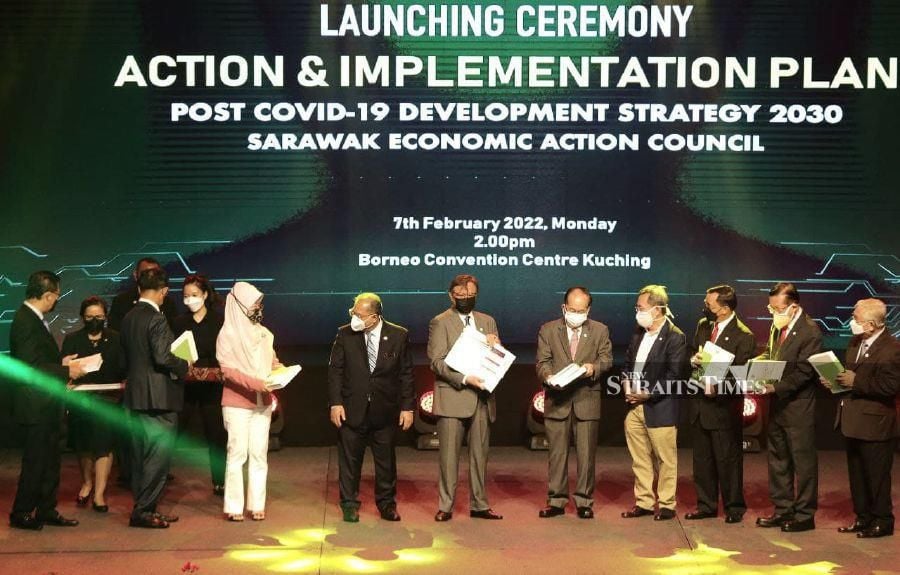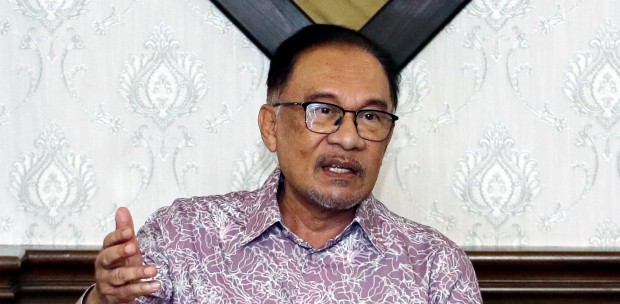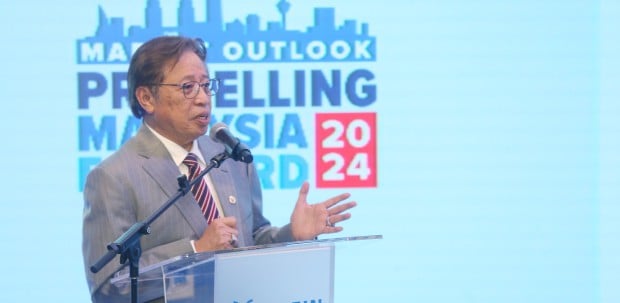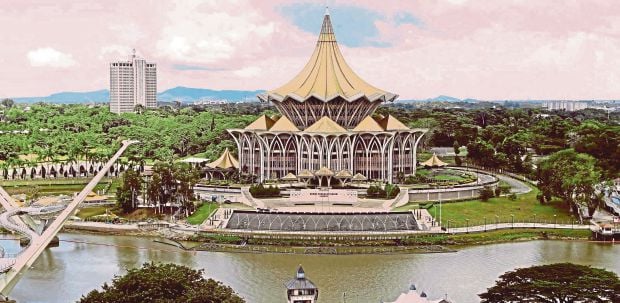KUCHING: Seventy per cent of the liquefied natural gas (LNG) supply in Malaysia comes from Sarawak, and yet the state only consumes less than five per cent of the country's total production.
Chief Minister Tan Sri Abang Johari Openg said there was a pressing need to intensify localisation of gas supply and utilisation to further industrialise Sarawak in the next five to 10 years in order to increase high value downstream economic activities in the state.
"At the same time, we are also exploring new oil and gas blocks onshore and offshore to ensure volume is available for Sarawak's journey towards industrialisation."
"We have established the Sarawak Gas Roadmap (SGR) 2030 with the aim to localise 1,200 million standard cubic feet per day by 2030," he said.
Abang Johari said midstream petrochemical industries such as methanol, ammonia, hydrogen and polyethylene will further enhance the existing downstream manufacturing ecosystem and create more business opportunities.
Once implemented, he said, Sarawak will create an additional 15,000 jobs in the oil and gas sector by 2030. In addition, having petrochemical derivatives capacities would also position Sarawak in the global manufacturing supply chain ecosystem.
Abang Johari was speaking at the launch of the Action and Implementation Plan (AIP) for Post Covid-19 Development Strategy 2030 (PCDS 2030) held at the Borneo Convention Centre Kuching (BCCK) here today.
He said AIP is an innovative way for Sarawak to ensure all its initiatives are aligned to PCDS 2030 aspirations while project management should be holistic, taking into consideration all aspects of project implementation, stakeholders involved, resources as well as requirements of law and procedures.
"We need to have an efficient implementation plan so that we can deliver the projects based on the funding, time and specifications. Many of the delayed projects are due to poor project management and deprive rakyat from enjoying the projects meant for them," he said.
In the forestry sector, Abang Johari said, Sarawak is targeting one million hectares of private-driven tree plantation initiative.
He said the average carbon sequestration of tropical forest, such as forests in Sarawak, is approximately 11 tonnes of Carbon Dioxide equivalent (CO2e) per hectare.
Based on one million hectares of high-yield and sustainable industrial forest plantation, the target for carbon trading potential is approximately RM140 - RM230 million based on the current average price of carbon.
"This is an immediately implementable initiative which represents only 10 per cent of the forestry sector under the Green Economy initiatives in Sarawak. We will collaborate with credible private sectors to capitalise on these carbon market potentials, including payment for ecosystem services within the legal framework to ensure transparency and accountability," he said.
Apart from that, he said, Sarawak must leverage on its two million hectares of agricultural land potential to produce food and agricultural downstream products.
"We are establishing direct linkages with regional retailers to build direct supplier models. We encourage the private sector with capital, expertise and technology as well as off-takers to venture into upstream production of our premium fruits, vegetables, livestock and seafood to be developed from farm to table especially for targeted high-income countries.
"We shall not limit ourselves to just producing fresh products which has limited shelf life but to explore other opportunities, especially in agriculture downstream manufacturing activities such as food processing, supplements, pharmaceutical, cosmetic and various bioorganic products."
Abang Johari said the Covid-19 pandemic has exposed the weaknesses of global supply chains of which efficiency and resilience were important components.
Hence, it is necessary position Sarawak as a key supplier to its regional neighbours and globally as the world looks to rebalance and diversify supply chains.






